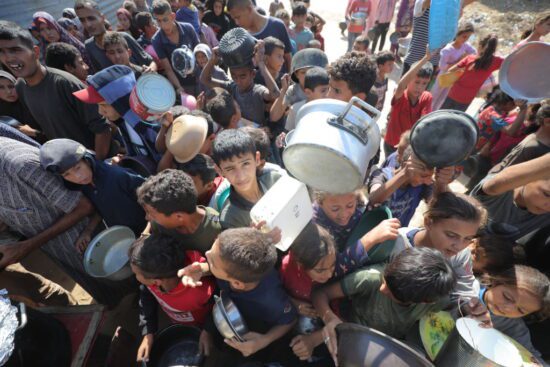Th[e] idea that our houses are hospitals and incubators was something I learned in my lesbian community in New York in the 1990s. We knew that our traditional, so-called Christian neighbors despised and distrusted us and regarded us as abominations. So we set out to be the best neighbors on the block.
We gathered in our people close and daily, and we said to each other, “This house, this habitus, is a hospital and an incubator. We help each other heal, and we help ideas take root.” We duplicated many house keys and made sure that everyone we loved had one. We meant what the key implied: you have access anytime. The door is not meant to hurt you or to keep you away.
This was during the first wave of AIDS, originally called GRID (gay related immune deficiency). Nouns such as Kaposi’s sarcoma, toxoplasmosis, pneumocystis carinii, cytomegalovirus, molluscum contagiosum, peripheral neuropathy, and cryptosporidiosis went from obscurity to familiar household words. Those were the days when my kitchen window held “Silence = Death” stickers and not children’s cutout snowflakes.
The AIDS epidemic required a big learning curve for me and my friends in the lesbian community. Outsiders might not know this, but there is no natural simpatico between women who identify as lesbian and men who identify as gay. We thought our brothers were hedonists, and they thought us politically high-minded prigs. But learn to come together we did. We learned how to care for one another across the fear of the plague. Some of my friends learned how to bootleg AZT before the pharmaceutical companies dropped their prices so that dying people could have a shot at taking it.
Out of desperation and fear and banding together in spite of our differences, a community was born. The tenacious, consistent, and sacrificial work of the LGBTQ community—work that was birthed over dinner tables and work benches (like the one I type on right now) have changed the landscape of American culture and pushed the boundaries of natural law. Of that I am sure.
I do wonder, now, as a Christian, if the church had been there, had helped, had shared in our grief, how the story would have unfolded differently.
A need for mercy-drive hospitality
These lessons—learned as far outside the walls of the church as possible—are instructive for Christians. We live in a post-Christian world that is sick and tired of hearing from Christians. But who could argue with mercy-driven hospitality? What a potential witness Christians have, untapped and right here at our fingertips.
Christians have a moral responsibility to be good stewards, and this includes stewarding the church, religious liberty, ideas, laws, the family, and the worldwide refugee crisis. The world is watching—and rightly so. And our lack of visible and genuine hospitality—practiced both inside our community and outside— is speaking louder than words right now.
Christians have a powerful history of building schools and hospitals, of showing up during natural disasters to offer water and food and shelter and medicine. We have that history. But do we have the daily witness of Christian neighboring?
Our post-Christian neighbors need to hear and see and taste and feel authentic Christianity, hospitality spreading from every Christian home that includes neighbors in prayer, food, friend- ship, childcare, dog walking, and all the daily matters upon which friendships are built.
Take, for example, our Christian brothers and sisters who struggle with unchosen homosexual desires and longings, sensibilities and affections, temptations and capacities. Our brothers and sisters need the church to function as the Lord has called it to—as a family. Because Christian conversion always comes in exchange for the life you once loved, not in addition to it, people have much to lose in coming to Christ—and some people have more to lose than others. Some people have one cross, and others have ten to carry. People who live daily with unchosen homosexual desires also live with a host of unanswered questions and unfulfilled life dreams. What is your responsibility to those brothers and sisters who are in this position in life?
Our Christian responsibility includes a house key
One answer is this: the gospel comes with a house key. Mark 10:28–31 reads:
Peter began to say to [Jesus], “See, we have left everything and followed you.”
Jesus said, “Truly, I say to you, there is no one who has left house or brothers or sisters or mother or father or children or lands, for my sake and for the gospel, who will not receive a hundredfold now in this time, houses and brothers and sisters and mothers and children and lands, with persecutions, and in the age to come eternal life.”
Please note what Jesus says about how to love anyone who responds to the gospel in faith and obedience and who must lose everything in order to gain the kingdom’s promises. Jesus says that he expects we will lose partners and children and houses in the process of conversion, that conversion calls everyone to lose everything. God’s people need to wake up to something. If you want to share the gospel with the LGBTQ community or anyone who will lose family and homes, the gospel must come with a house key. This hundredfold blessing promised here in these verses is not going to fall from the sky. It is going to come from the church. It is going to come from the people of God acting like the family of God. God intends this blessing to come from you. And real Christian hospitality that creates real Christian community expresses authentic Christianity in deep and abiding ways to a world that thinks we are hypocrites.
All around you, people hunger for the covenant of God to include them.
If the gospel comes with a house key, then the people in the house are not primarily instrumentally useful but rather inherently valuable. In Christ we are family. In the family of God the personal is the covenantal, not the political. We—all of us—are image-bearers, first and foremost. We belong to each other because we share a heavenly Father. Our identity and our calling must emanate from God’s image radiating in and through us.
All around you, people hunger for the covenant of God to include them.
The gospel comes with a house key, not because it is easy, but because it is hard. God makes the key—and the lock to fit it.
Content taken from The Gospel Comes with a House Key: Practicing Radically Ordinary Hospitality in Our Post-Christian World by Rosaria Butterfield, ©2018. Used by permission of Crossway, a publishing ministry of Good News Publishers, Wheaton, Il 60187, www.crossway.org.










